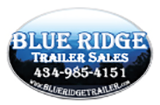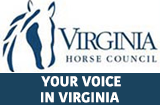Virginia Tech moves sport horse program to Middleburg
Submitted by: Betsy Burke Parker
Phone: 540-364-2929
Email Address: betsyp(at)crosslink.net
Date Added: 11/13/2009
By Betsy Burke Parker
Virginia Tech's respected band of sport-horse broodmares are packing their bags -- they're heading north.
Widely considered the biggest news to rock northern Virginia's horse country this year, Tech's equine education program will move its broodmares and production program from the university's main campus in Blackburg to the Middleburg Agricultural Research and Extension Center.
Yearlings from the sport horse mares are sold annually in a fund-raising auction at Blackburg. At MARE, they will join several nutrition research bands.
In addition, the college of agriculture and life sciences announced plans to create a new “equine education program” at MARE.
“We are extremely excited about the opportunity to expand the equine programs at Virginia Tech by taking full advantage of the facilities and location of the MARE Center,” said department chief David Gerrard. “Providing a novel, cutting-edge learning experience in equine education is consistent with the high ideals and standards already set by the university. The MARE Center already plays a critical role in the college's discovery and outreach functions, and this addition enhances Virginia Tech's commitment to the education of tomorrow’s leaders.”
The semester course immerses students into horse learning, preparing them for employment in a range of fields in the horse industry.
In addition to the structured curriculum, students will participate in daily operations of the large-scale equine breeding, show and sales facility. Students qualify for summer internship programs as well as a study-abroad course.
“The difference between this program and the program offered in Blacksburg will be the amount of experiential learning that will be demanded of those enrolled in the program,” Gerrard said. “This is a working operation, where horses require attention 24/7. There will be ample outreach and discovery opportunities for these students during their stay at Middleburg, exemplifying the comprehensive scope of the three missions of a land-grant university.
Mimi Abel-Smith and Dr. Matthew Mackay-Smith, part of MARE's advisory council, noted that expanding the program to include sport horses made the program unique. “The activities at the center will benefit every horse and horse person, from a child’s pet to the fastest race horse,” said Millwood's Mackay-Smith. “This expansion provides the horses and programs essential to achieving excellence in both equine science and education, and adds to the layman’s understanding of this marvelous animal.”
Formerly, the MARE breeding program was limited to registered Thoroughbreds. Mares, stallions and the resulting foals are separated into control and experiment groups for nutrition and forage studies. Foals are sold each year as yearlings to raise funds for the program, which provides critical nutrition research data for all horses.
As funds are secured, Gerrard anticipates significant expansion of the center’s facility. The sport horse training and breeding program requires large indoor and outdoor arenas for teaching purposes, along with serviceable breeding facilities and additional classrooms and research laboratories.
Rebecca Splan, associate professor of animal and poultry sciences, will relocate to Middleburg to join Shea Porr, superintendent of the center, to develop and teach the curriculum. Faculty members at the Marion duPont Scott Equine Medical Center in Leesburg will collaborate in the program.
The equine education program on the Blacksburg campus will remain largely unchanged but will likely benefit from future additions to the faculty. “Clearly, we have a rather large student body interested in an education centered on the horse, and we intend to do our utmost to ensure its viability and growth into the foreseeable future,” said Gerrard. “The program at Middleburg simply adds to our equine education portfolio.”
Virginia Tech’s College of Agriculture and Life Sciences focuses on the science and business of living systems, with more than 2,400 students enrolled.
The Middleburg Agricultural Research and Extension Center is one of Virginia Tech’s 13 ARECs. The late philanthropist Paul Mellon donated the 420-acre farm in 1949 for Tech's research hub. Initial research centered on improving pasture and animal productivity while enhancing the land. During the 1980s, an impressive gift of horses shifted the center’s research focus from cattle to horses. Today, MARE is one of the world’s leading equine research units.
Log on for more details: www.vaes.vt.edu/middleburg.
|
Click Image to View Larger

|




